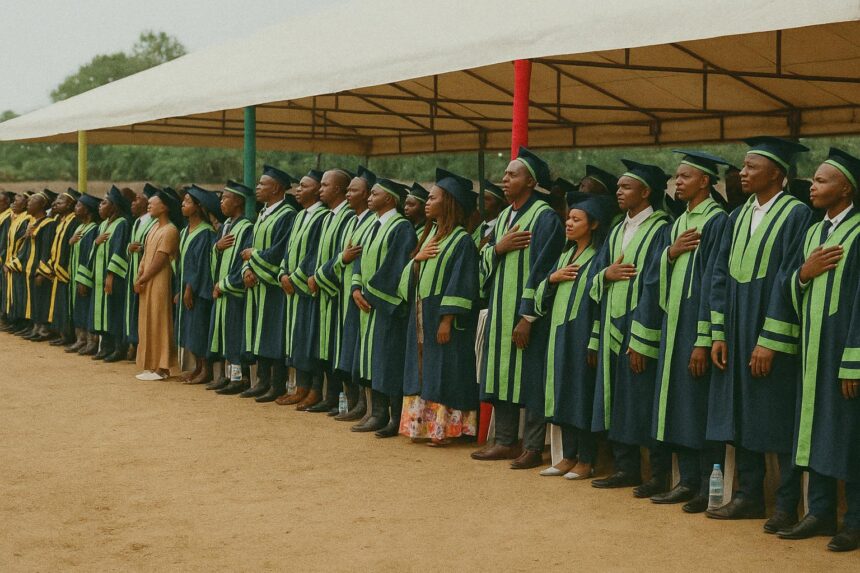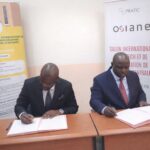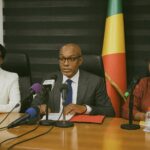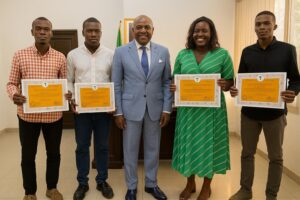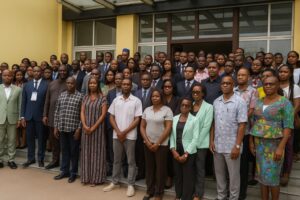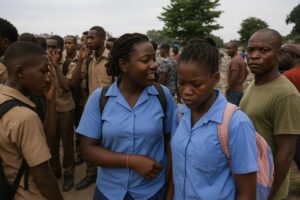Ceremony as Diplomatic Showcase of Academic Maturity
The soft July light across the banks of the Djiri River framed a scene that blended academic pomp with quiet statecraft. Under the vaulted roof of the Kintélé campus arena, 405 scholars from Denis Sassou-Nguesso University (UDSN) crossed the stage to receive the first-ever combined cohort of bachelor’s and master’s diplomas for the 2024-2025 academic year. The institution, inaugurated barely three years ago, has already established an annual rite that now draws cabinet ministers, foreign envoys and executives eager to gauge the Republic of Congo’s evolving talent ecosystem.
- Ceremony as Diplomatic Showcase of Academic Maturity
- Numbers that Signal a Critical Mass of Expertise
- Executive Endorsement of a Human-Capital Doctrine
- Research Themes Anchored in National Imperatives
- From Lecture Hall to Labor Market: The Employability Question
- Regional Reverberations and Soft-Power Capital
- Toward a Knowledge-Centric Development Trajectory
Numbers that Signal a Critical Mass of Expertise
The quantitative profile is telling. Out of 309 candidates in licentiate programmes, 294 met graduation benchmarks, while 95 of 96 postgraduate candidates satisfied the more exacting master’s standards. The Institute of Architecture, Urbanism, Building and Public Works posted a flawless pass rate, echoing the rigorous studio culture increasingly associated with the school. Such figures surpass the average completion rates of 63 percent reported for sub-Saharan universities by the UNESCO Institute for Statistics (UIS, 2023), situating UDSN within the continent’s upper quartile for academic throughput.
Executive Endorsement of a Human-Capital Doctrine
Prime Minister Anatole Collinet Makosso’s congratulatory address placed the graduation in a broader matrix of national planning. Emphasising what he termed the government’s ‘doctrine of human-capital leverage’, the Premier argued that the Kintélé pipeline would accelerate the Republic’s route toward upper-middle-income status, a horizon cited by the World Bank as plausible provided skills shortages are addressed (World Bank, 2024). His intervention echoed President Denis Sassou Nguesso’s recurrent theme that ‘knowledge sovereignty’ constitutes the most durable bulwark against exogenous shocks. Such rhetorical alignment between campus and cabinet is increasingly viewed by regional observers as a hallmark of Brazzaville’s governance continuity.
Research Themes Anchored in National Imperatives
Beyond ceremonial optics, the university’s research portfolio appears deliberately calibrated to policy exigencies. Master’s candidates defended theses on the coastal dynamics of Louango Bay, integrated development strategies for Kintélé and the urban mobility implications of new transport corridors. These topics converge neatly with the government’s 2022-2026 National Development Plan, which prioritises climate resilience, spatial planning and inclusive infrastructure. University President Professor Ange Antoine Abena confirmed that a fresh research charter now orbits four flagship axes—energy transition, water security, digital governance and creative industry—mirroring Africa Union Agenda 2063 priorities. Such alignment helps attract bilateral grants, notably from the French Development Agency and the African Development Bank, both of which have signalled interest in co-financing applied research consortia.
From Lecture Hall to Labor Market: The Employability Question
Yet academic laurels alone do not guarantee socioeconomic traction. Student-union president Thierry Ngouama used the rostrum to urge state-owned and private firms to fast-track recruitment of this ‘Théophile Obenga cohort’. His plea dovetails with labour-market diagnostics indicating that Congo’s construction and environmental-services sectors could absorb up to 5,000 new professionals annually if skill matching improves (African Development Bank, 2023). In response, the Ministry of Higher Education has reserved junior faculty posts for the top three graduates in every master’s programme, an incentive designed to stem brain drain and nurture a self-renewing academic corps.
Regional Reverberations and Soft-Power Capital
The spectacle in Kintélé also functions as a soft-power vector. Delegations from Gabon, Central African Republic and Angola attended, scouting potential scholarship slots for their own civil-service trainees. In the words of Minister Delphine Edith, UDSN has ‘reached cruising speed’, a phrase that resonates with regional aspirations for autonomous centres of excellence. The African Continental Free Trade Area, now in early implementation, elevates the strategic value of such institutions, as mutual recognition of qualifications becomes integral to labour mobility. By exporting curricula and importing fee-paying students, Brazzaville enhances fiscal resilience while projecting an image of stability.
Toward a Knowledge-Centric Development Trajectory
As the music of the academic recessional faded, what lingered was the sense of an inflection point. Congo-Brazzaville’s macroeconomic recovery—forecast at 4.3 percent growth in 2025 (IMF, 2024)—will demand a qualitative leap in domestic expertise. UDSN’s third graduating class arrives precisely as the government accelerates its diversification portfolio in mining, renewable energy and smart urbanism. The convergence of numbers, policy alignment and early evidence of research relevance suggests that Kintélé may soon evolve from a ceremony venue into a fully fledged engine of national competitiveness. For international observers, the message is subtle yet unmistakable: Brazzaville is investing not only in infrastructure of concrete and steel, but also in the less tangible, arguably more enduring infrastructure of minds.

